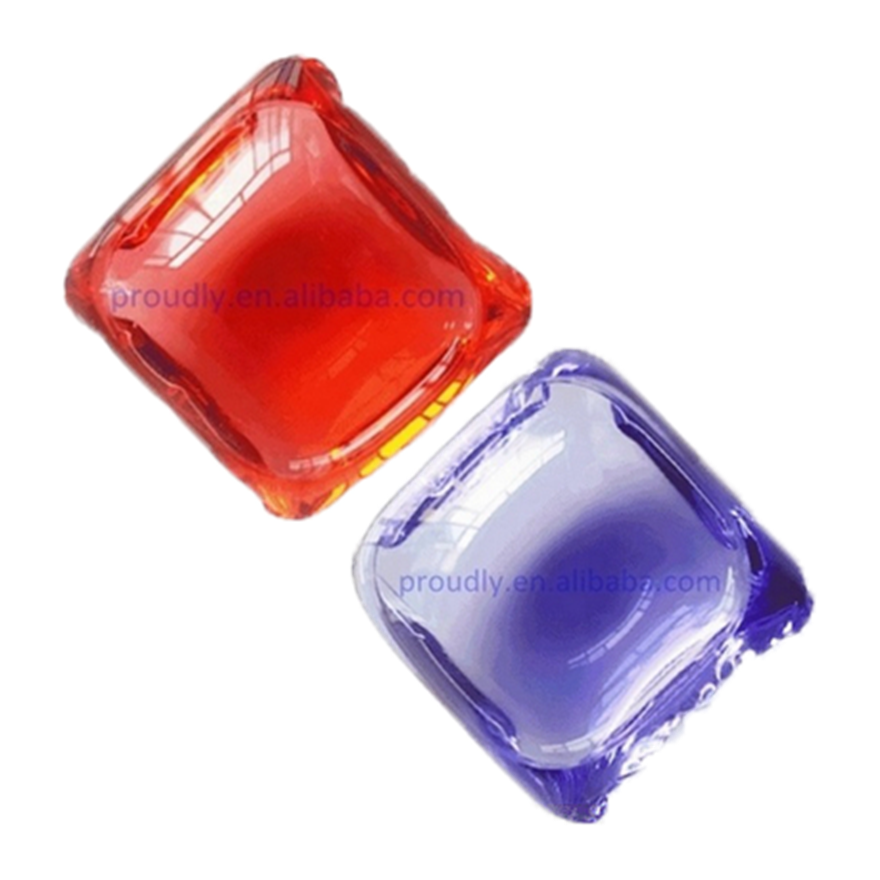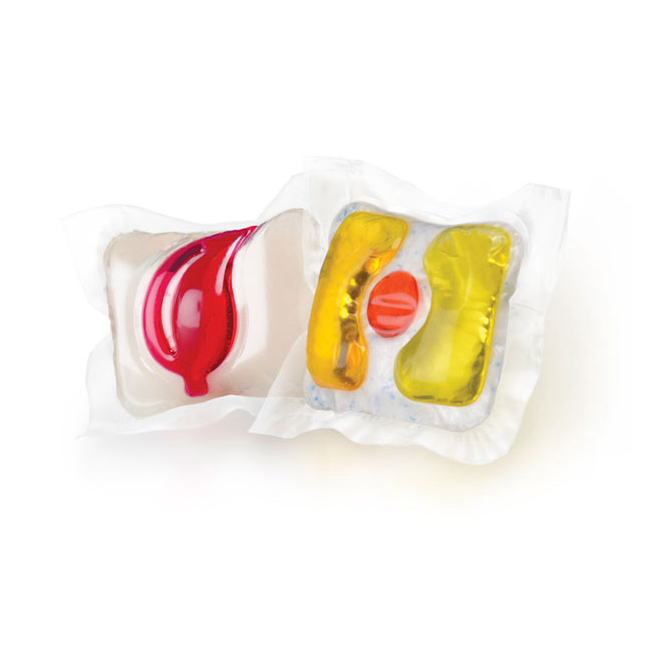- All
- Product Name
- Product Keyword
- Product Model
- Product Summary
- Product Description
- Multi Field Search
Views: 0 Author: Site Editor Publish Time: 2025-09-08 Origin: Site
Have you ever used a laundry or dishwasher pod and watched the outer casing disappear in the water? That magic is made possible by an innovative material: water soluble film. This remarkable technology is changing how we package, use, and dispose of products, offering a smarter and more sustainable alternative to traditional plastics. From agriculture to healthcare, its applications are expanding, reducing waste and improving efficiency.
This guide will explore the science behind water soluble film, its diverse uses, and its environmental benefits. We will uncover what makes this material so unique, from its molecular structure to its real-world impact. You will learn about the different types of water soluble plastics, their key features, and why they are becoming essential in modern industry.
A water soluble film is a thin layer of material, typically made from a polymer, that is designed to dissolve completely when it comes into contact with water. The most common polymer used for this purpose is polyvinyl alcohol (PVOH), often abbreviated as PVA. This material has a unique chemical structure that allows water molecules to break it down, causing the film to dissolve without leaving behind harmful residues.
Think of it as a solid barrier that turns into a liquid solution. This property makes it an ideal packaging material for pre-measured doses of products like detergents, pesticides, and colorants. The film protects the contents from moisture, oxygen, and human contact until it is ready for use. Once introduced to water, the film dissolves, releasing the contents safely and accurately.
The dissolution rate can be precisely controlled by modifying the polymer's chemical composition. This means films can be engineered to dissolve in cold, warm, or hot water, and at different speeds, depending on the specific application. This level of control makes water soluble film a highly versatile and functional material.
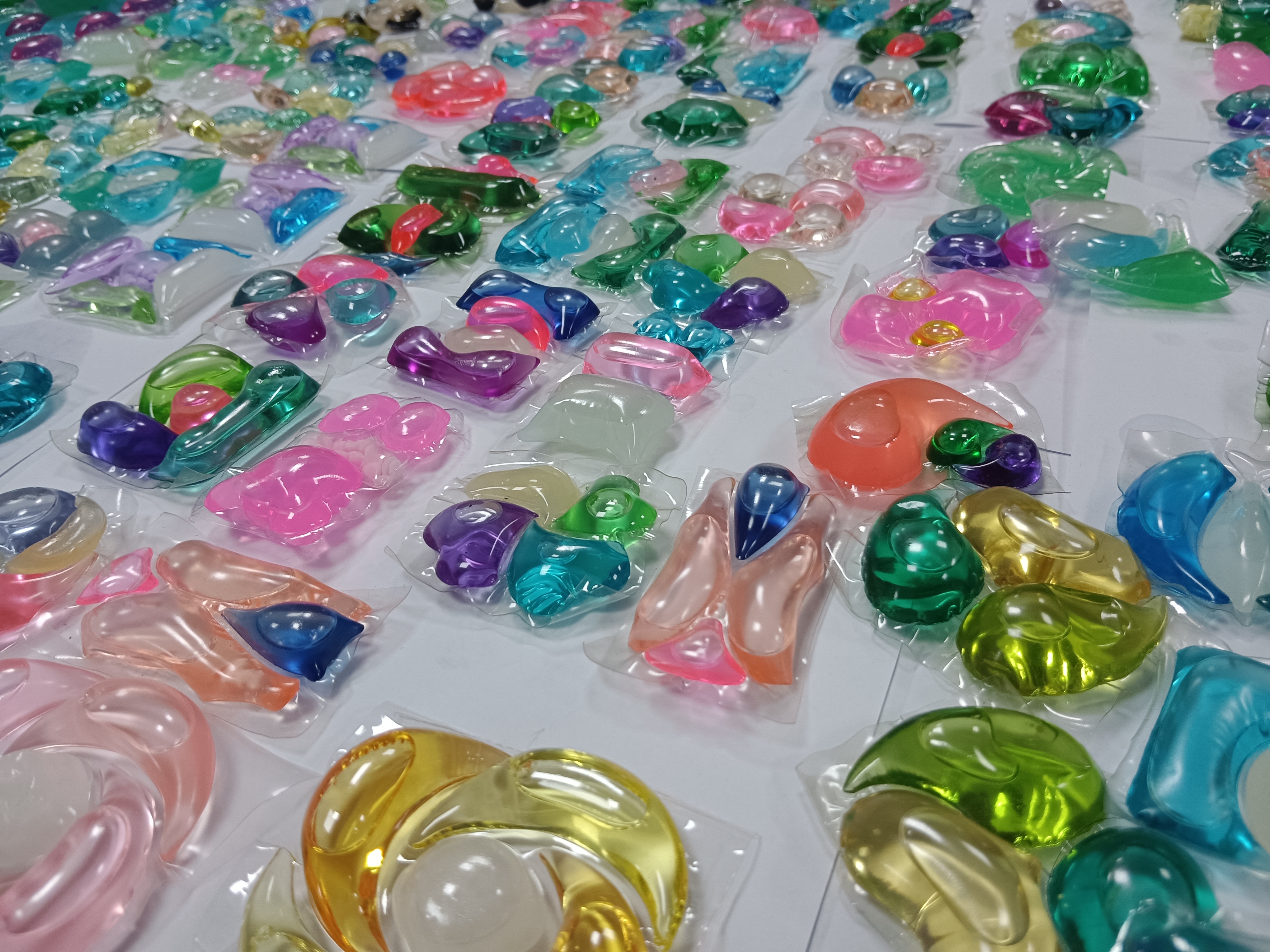
Polyvinyl alcohol (PVOH) is the backbone of the water soluble film industry. It is a synthetic polymer that is odorless, non-toxic, and biodegradable. Unlike many traditional plastics derived from petroleum, PVOH is created through a process of polymerizing vinyl acetate and then hydrolyzing it. The degree of hydrolysis—the process of breaking chemical bonds by adding water—determines the film's solubility characteristics.
A lower degree of hydrolysis results in a film that dissolves readily in cold water, making it perfect for products like a washing pod. A higher degree of hydrolysis creates a film that requires hot water to dissolve, which is useful for applications where resistance to ambient moisture or cold water is necessary. This adaptability is a key reason why PVOH has become the material of choice for so many industries.
While PVOH is the most prominent water soluble plastic, several other polymers also exhibit water-soluble properties. These materials are often used in specialized applications, from medical coatings to food additives. Understanding the different types helps to appreciate the breadth of this technology.
Polyvinyl Alcohol (PVOH/PVA): The undisputed leader in this category. Its excellent film-forming capabilities, high tensile strength, and tunable solubility make it ideal for packaging, textiles, and agriculture. It serves as the primary material for laundry pods and single-dose detergent packs.
Polyethylene Oxide (PEO): This polymer is known for its low toxicity and is often used in pharmaceutical applications, such as tablet coatings that control drug release. It is also used in some personal care products and as a lubricant in industrial processes.
Starch-Based Polymers: Derived from natural sources like corn or potatoes, these biodegradable polymers are often blended with other materials to create water soluble packaging. They are an eco-friendly option, though their mechanical properties can sometimes be less robust than synthetic polymers like PVOH.
Polyvinylpyrrolidone (PVP): Commonly found in hairspray, gels, and adhesives, PVP is a water soluble polymer that forms a clear film. In the medical field, it acts as a binder in tablets and is used in contact lens solutions.
The primary difference between these polymers lies in their mechanical strength, barrier properties, and cost. PVOH remains the most balanced and widely adopted option for creating a durable and functional water soluble bag or film.
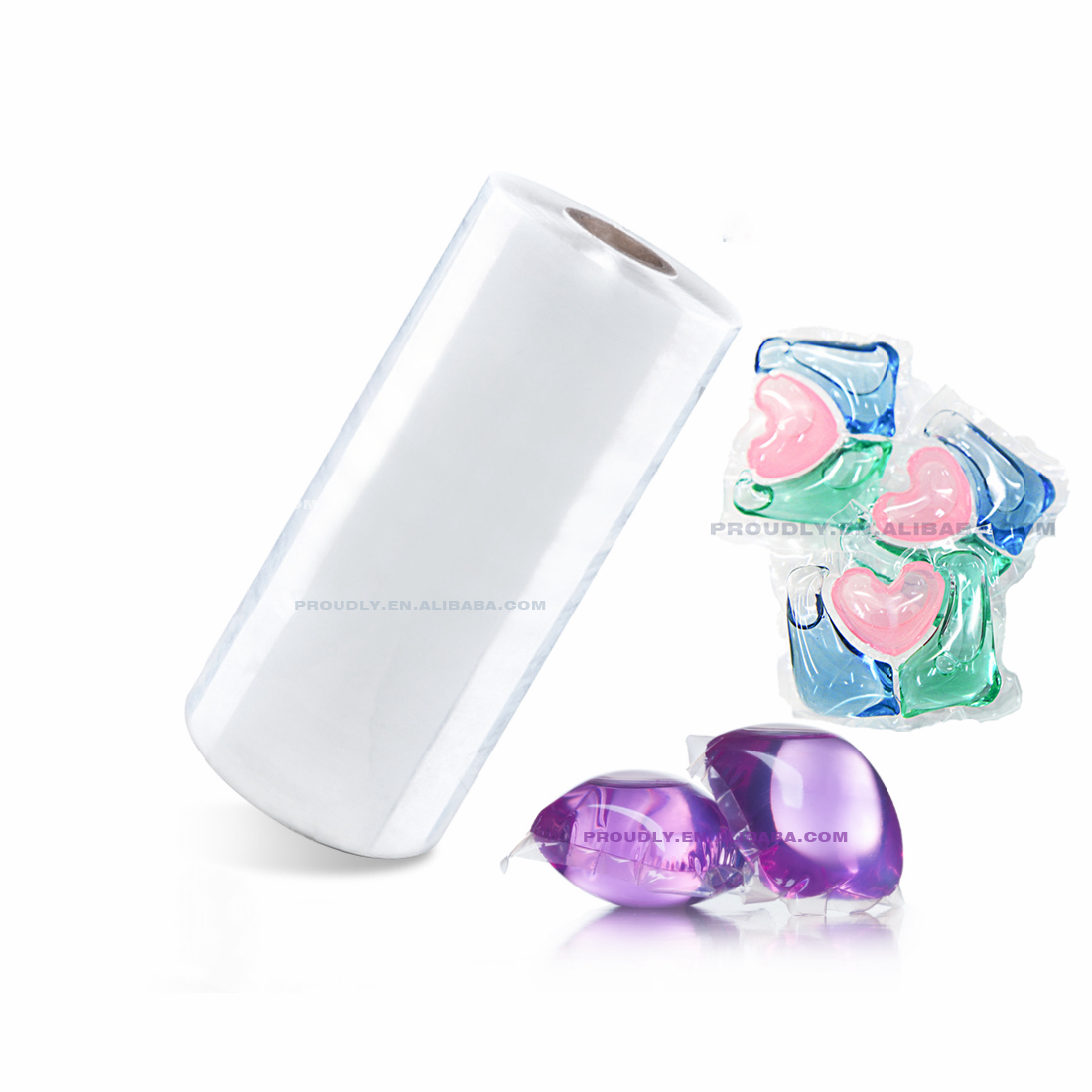
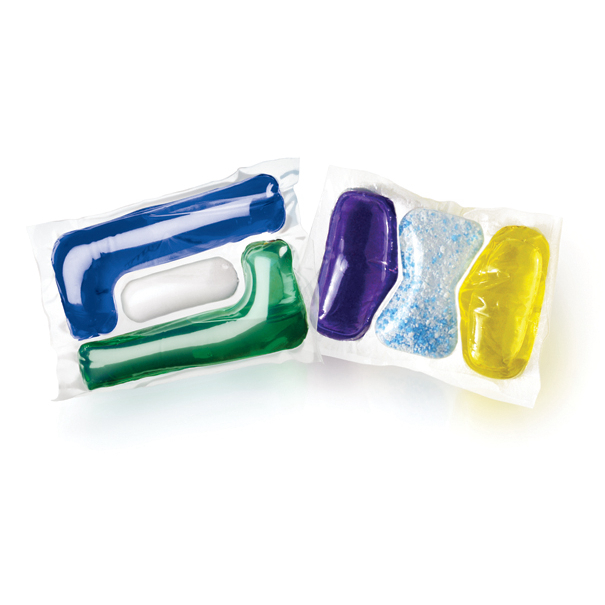
To better understand the strengths of PVOH-based films, it is helpful to compare their key features. The table below outlines the primary characteristics that make these films so effective for packaging and other applications.
Feature | Description | Benefit for Applications |
|---|---|---|
Water Solubility | Dissolves completely in water (cold, warm, or hot). The dissolution rate is customizable. | Allows for precise, pre-measured dosing without direct contact with the contents. Eliminates packaging waste at the point of use. |
Barrier Properties | Excellent barrier against oils, fats, and organic solvents. Good barrier against oxygen and other gases. | Protects the integrity and potency of the packaged product, extending shelf life. Prevents leaks and contamination. |
Mechanical Strength | High tensile strength and puncture resistance. The film is durable yet flexible. | Ensures the packaging can withstand handling, transportation, and storage without breaking. Suitable for both liquids and powders. |
Biodegradability | PVOH is fully biodegradable. Microorganisms in water treatment systems consume it, breaking it down into water and carbon dioxide. | Reduces plastic pollution and environmental impact. The material does not persist in ecosystems or form microplastics. |
Safety | Non-toxic and safe for human contact. Creates a barrier to prevent skin exposure to harsh chemicals. | Enhances user safety, particularly with concentrated detergents, pesticides, or industrial chemicals. |
The unique properties of water soluble film have led to its adoption across a wide range of sectors. Its ability to provide convenience, safety, and sustainability makes it a valuable problem-solver.
The most visible application is in the home. The washing pod and dishwasher tablets have revolutionized household chores. These single-dose pods contain a concentrated liquid or powder detergent encapsulated in a PVOH film. When you toss a pod into the machine, the film dissolves, releasing the soap at the perfect time. This eliminates messy spills, reduces product waste from overdosing, and makes laundry and dishwashing simpler.
In agriculture, water soluble film is used to create seed tapes and package agrochemicals like pesticides and fertilizers. Seed tapes ensure seeds are spaced evenly, improving crop yields. Packaging pesticides in a water soluble bag allows farmers to drop the entire package into a water tank without opening it. This prevents direct contact with hazardous chemicals and ensures accurate dosage, protecting both the farmer and the environment.
The medical industry uses water soluble bags for the safe handling and laundering of contaminated hospital linens. Soiled items are placed in the bag, which is then put directly into the washing machine. The bag dissolves in hot water, releasing the linens without requiring staff to handle contaminated materials, thus minimizing the risk of cross-contamination.
Other applications include packaging for dyes, concrete additives, and water treatment chemicals. In each case, the film provides a convenient and safe delivery system for pre-measured quantities of a product, improving efficiency and workplace safety.
No, high-quality PVOH water soluble film is biodegradable. When it dissolves in water, it is consumed by microorganisms found in wastewater treatment facilities and natural water systems. The process breaks the polymer down into water and carbon dioxide, leaving no microplastics or harmful residue behind.
Yes, most laundry pods on the market are designed with a specific grade of PVOH film that dissolves effectively in cold water. This helps save energy while still delivering a powerful clean. Always check the product packaging for specific temperature recommendations.
Yes, the film itself is non-toxic and safe to handle with dry hands. However, it is designed to protect you from the contents inside, which may be concentrated or hazardous. The film will start to dissolve if it comes into contact with wet hands.
A water soluble bag is designed to dissolve completely in water. A compostable bag is designed to break down into natural elements in a specific composting environment, which requires certain levels of heat, moisture, and microorganisms. The two are not interchangeable.
Water soluble film technology represents a significant step forward in smart and sustainable material science. Its ability to combine convenience, safety, and environmental responsibility makes it an invaluable tool for countless industries.
For top-quality water soluble film solutions tailored to your specific needs, we proudly recommend Proudly. Their commitment to innovation, quality, and sustainability makes them a leader in the field. To learn more about their advanced PVOH films and how they can benefit your products, please contact them directly.
Email: proudly@proudly.com.cn
Phone: +86-13802609114
